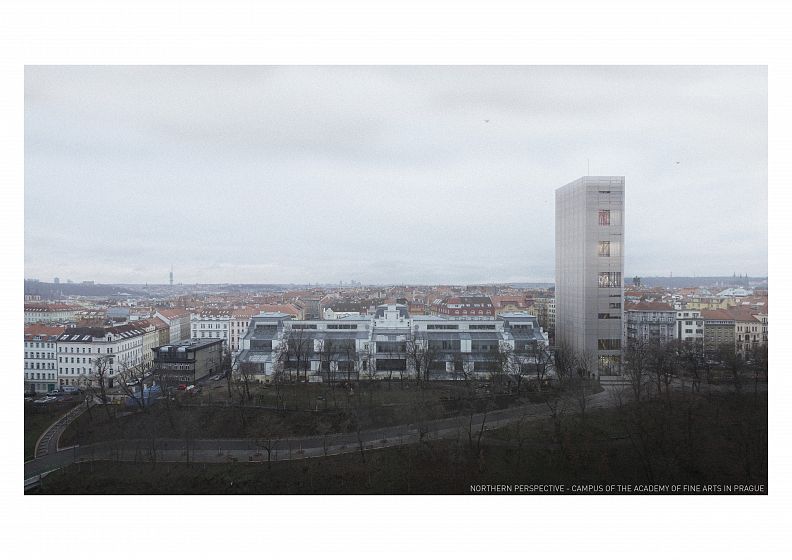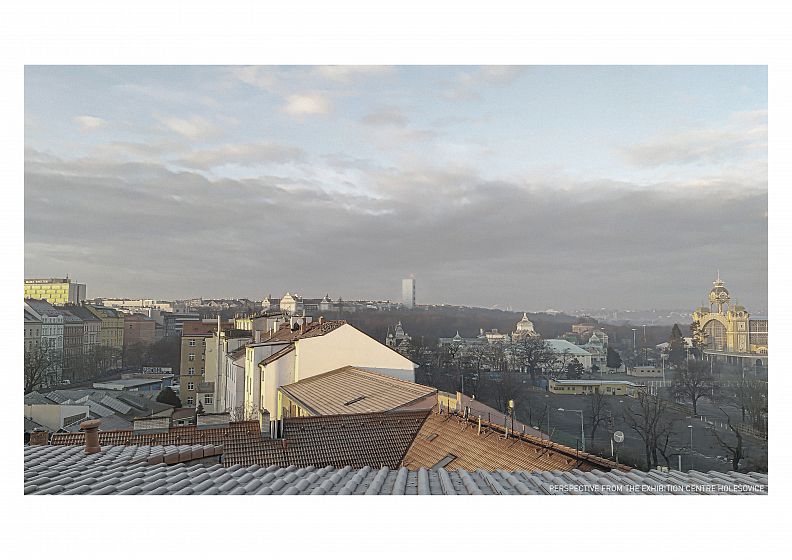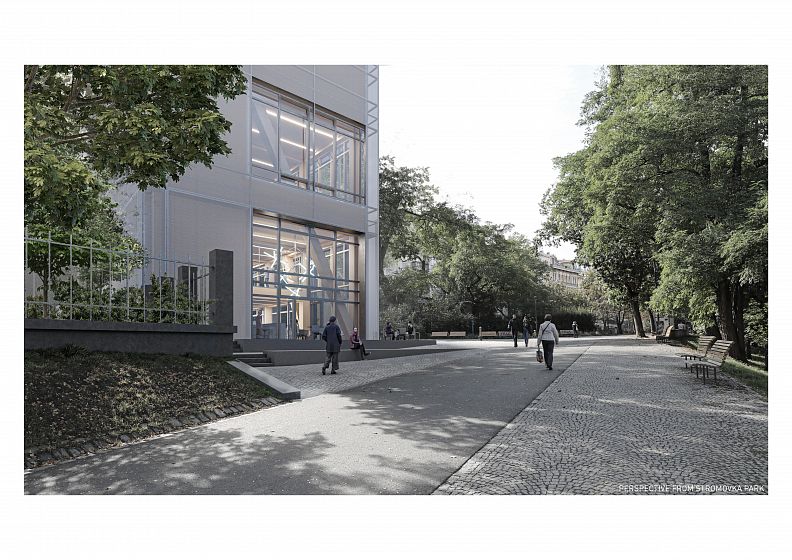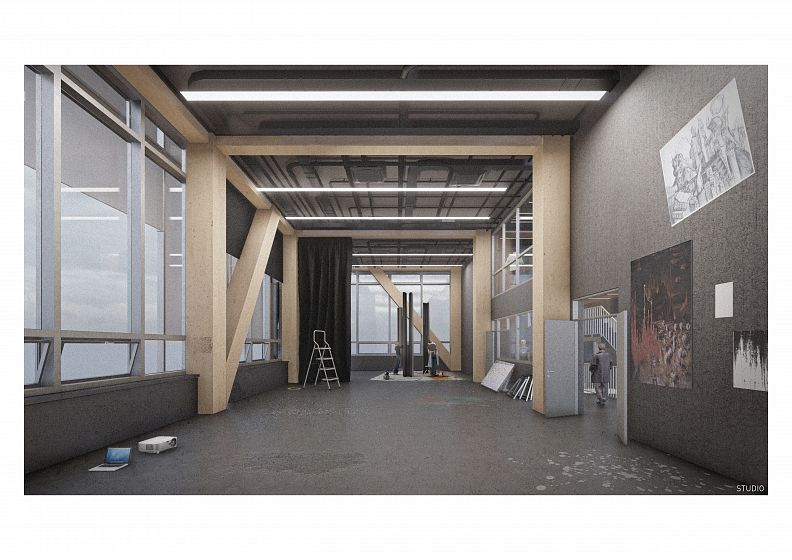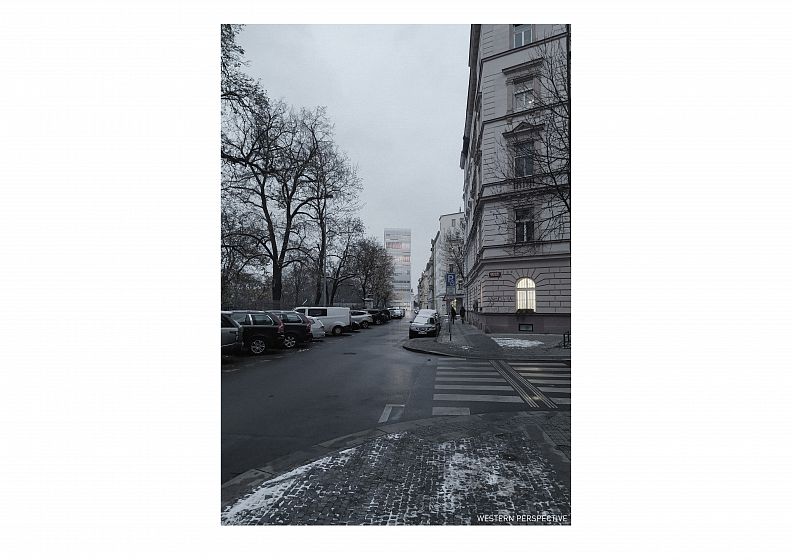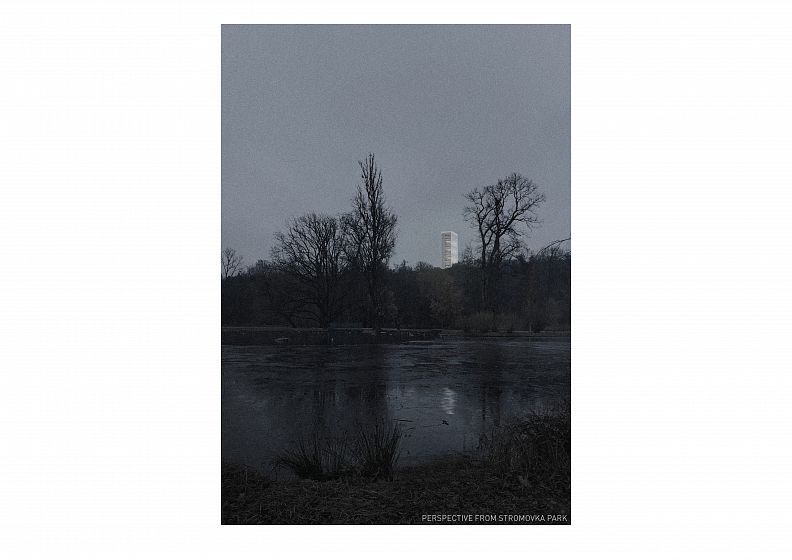Post-media Studio of The Academy of Fine Arts in Prague

Project idea
The new building of the Academy of Fine Arts in Prague is designed for the Postmedia Studio. It is to provide artists with a space that is currently insufficient at the Academy and does not meet the demands that the creation of modern art requires. Nowadays it is necessary to create a space for AVU students suitable for the creation of digital art, audio-visual images, robotics and their mutual synthesis with science or traditional artistic expressions.
The project seeks to highlight the potential that the Academy can develop in the future - the importance of art as a reflection of the times, but also a vision of the future in which digitality will undoubtedly continue to play a huge role. Specialised laboratories, open studios and appropriate technology should provide the artist with everything he needs to create and stimulate his endless imagination.
Among other things, the tower is meant to be a symbol of change, a vision in which contemporary art comes into the public consciousness. The tower rises above the surrounding buildings, drawing attention to the Academy. The currently unknown, closed Academy becomes a place of social integration with the new building. The parterre with its café, gallery, multifunctional and lecture hall opens onto the entrance to Stromovka Park and is a place where the world of artists meets the public.
The tower communicates with its surroundings through a textile projected façade, which is another medium - a canvas where artists project the art they create here during important events. In the places of the window openings, the textile façade panels are designed as blinds, and the façade of the house is thus constantly changing according to the needs of its users. When all the textile shutters are lowered, the tower transforms into a solid object on the horizon, encouraging curiosity.
Project description
The tower operationally consists of two primary parts. A concrete communication core and a wooden skeleton where everything essential takes place from art-making, research, experimentation, recreation, teaching and gathering.
The ground floor, along with the other three floors, is dedicated to community building and integration with the public. On the ground floor, the AVU café/club and the entrance to the school open through large glass windows to the public space - a small square that is also the entrance to Stromovka Park. Above the café/club on the 2nd-3rd floors, there is a multifunctional hall with a retractable auditorium for lectures.
The school contains three typologies of spaces for artists to work. Elevated studios for working on large physical models and connecting digital art with traditional forms such as painting and sculpture. The space of the studios can be divided into smaller units according to the needs of the artists.
An essential part of the project is the specialized laboratories, which are equipped with the latest technologies that students need to work with. From digital labs with high-performance computers, robotics and audio-visual workstations to biology labs. Spaces for work are complemented by places to relax, consult and collaborate interdisciplinarily. The underground floors house the archive, depository, storage and café/club facilities.
Technical information
The project works with a hybrid structure of heavy timber frame stiffened by a concrete core. The two structural systems are fused to work as a whole. Wood, as an ecological and renewable material, is used for the open part of the house, which includes the different areas of the school, while the concrete core contains the vertical circulation of the staircase and lifts, technical shafts, sanitary facilities and is also a fire escape protected route.
The acoustic parameters of the timber structure are minimised by the concrete floor slabs laid on load-bearing CLT panels. The wall surfaces are lined with acoustic panels to achieve the required values according to the needs of the individual spaces. The CLT beams are stamped with the concrete core and slabs to provide spatial rigidity. A sandwich panel façade system with window openings wraps the thick structure of the house.
Thermal control of the house is provided by radiant ceiling panels that cool or heat the building as needed. Ventilation is designed as natural, with the possibility of using ventilation integrated into the ceiling structure. A pre-screened PTFE fabric façade reduces the building's heat gain while protecting against direct sunlight in the school premises.
